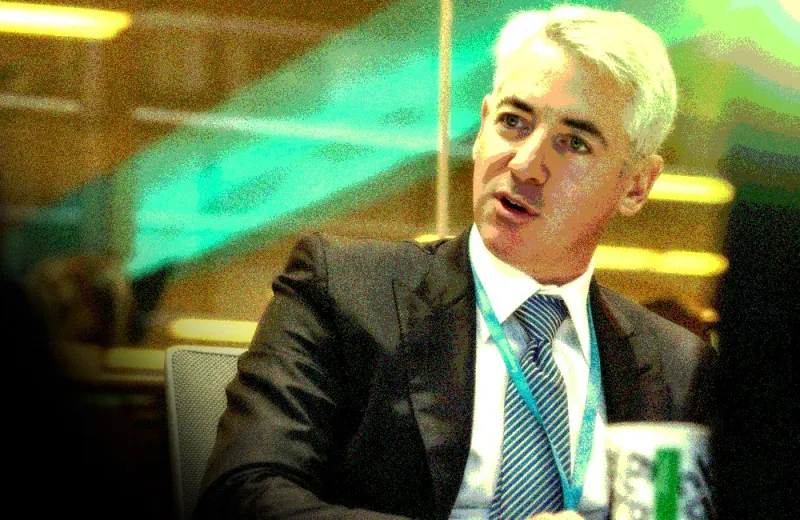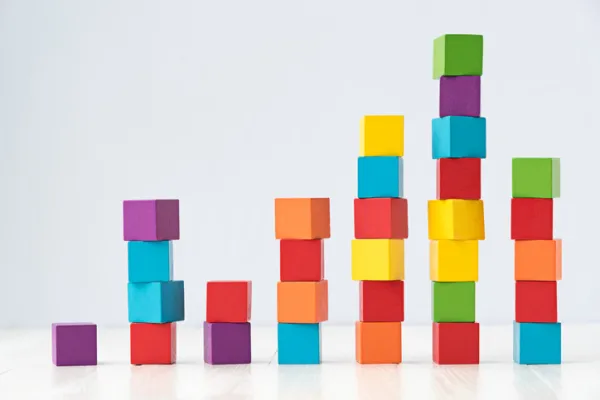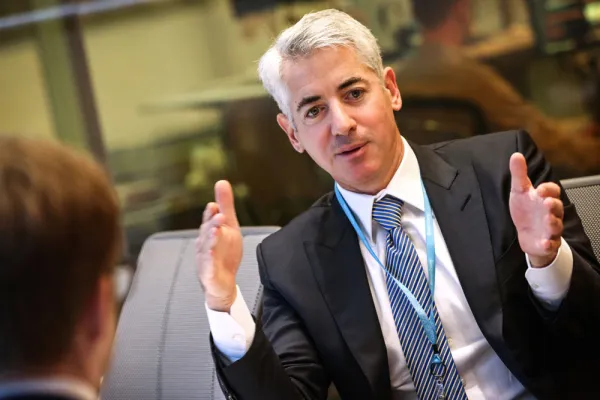Bill Ackman’s bet on rising interest rates has paid off big time, earning his firm almost $2 billion this year. All told, Ackman has earned $5.2 billion on short bets since the Covid-19 pandemic began in 2020.
Despite that success, Ackman’s Pershing Square Capital funds are still down as much as 8 percent this year on a gross basis, he told investors in a quarterly call Thursday. Not counting the interest rate bet — or hedge as he likes to call it — the equity positions of the funds fell by around 22 percent.
Offsetting that loss are the 13 percentage points that Pershing Square gained betting interest rates would rise.
The interest rate bet helped keep the portfolio ahead of the market, Ackman said, noting that Pershing Square’s hedge funds have outdone the S&P 500 by 6 percentage points so far this year.
“We feel quite good about the relative performance,” he said. Ackman noted, however, that 4 percentage points of Pershing Square’s losses are a permanent loss from the sale of its big Netflix stake. Although most of the stocks Pershing Square owns are in the red this year, he said that was due to a “rerating of the market generally.”
“We don’t mind as long as we believe in the long-term performance,” he said.
Ackman runs a concentrated long portfolio of eight equity holdings, and the only two of them whose shares are in the black this year are Canadian Pacific Railways and Restaurant Brands.
But betting against the market has proved quite lucrative. Short bets placed over the past three years now account for about 40 percent of the the Pershing Square’s profits, with firm capital now standing around $11 billion.
Pershing Square made $2.5 billion in 2020, $700 million in 2021, and $2 billion so far this year on such investments.
Ackman began making his bet on rising rates last last year. Believing that rising inflation would force the Federal Reserve to raise rates, Pershing Square paid $180 million for interest rate swaptions — options to enter into interest rate swaps — and sold them earlier this year when were worth $1.45 billion. Ackman explained that he replaced those with swaptions with an extended maturity when the strike price was out of the money. He later sold that second hedge for $1.3 billion.
Pershing Square then spent $240 million on a third bet on rising rates; Ackman said that one is now worth $446 million.
“Had we kept our initial investment, we would have made more money,” he acknowledged. But as the investments pay off, Ackman explained, “they no longer represent asymmetric bets.” Pershing Square’s approach is to “roll them as they become significantly valuable,” he said, because there is a risk that they could lose half their value in one day.
The firm also has a few commodity hedges and forward contracts to hedge the currency risk of its holdings in Europe, like Universal Music Group, and Canada, like Canadian Pacific.
“You should expect this to be part of our thinking going forward,” he said, noting the “volatile world” we live in has forced the hedge fund to dedicate more time to thinking about “potential black swans.”
Today Ackman is still betting that interest rates will continue to rise, saying they are “meaningfully below where they are going to go. That is a risk for equities.”
He believes that inflation is going to be structurally higher than it has been historically.
“We don’t believe the Fed is going to get back to 2 percent,” Ackman said, referring to the inflation target the Fed has historically used. Various factors, including de-globalization, will keep inflation at a higher level in the U.S.
“We had the benefit for many years of outsourcing of production to low-cost labor markets,” he said, but that era is over. The Covid pandemic alone has made the U.S .reconsider “distant supply chains.”
“A lot more of that business is going to come closer to home,” he said. “It’s more expensive to do business here.”
Ackman also thinks “the transition to alternative energy is going to be expensive.”
All of that means that the cost of debt will continue to rise for companies. “Locking in a 4 percent fix rate for 30 years is going to be difficult to do,” he said.







